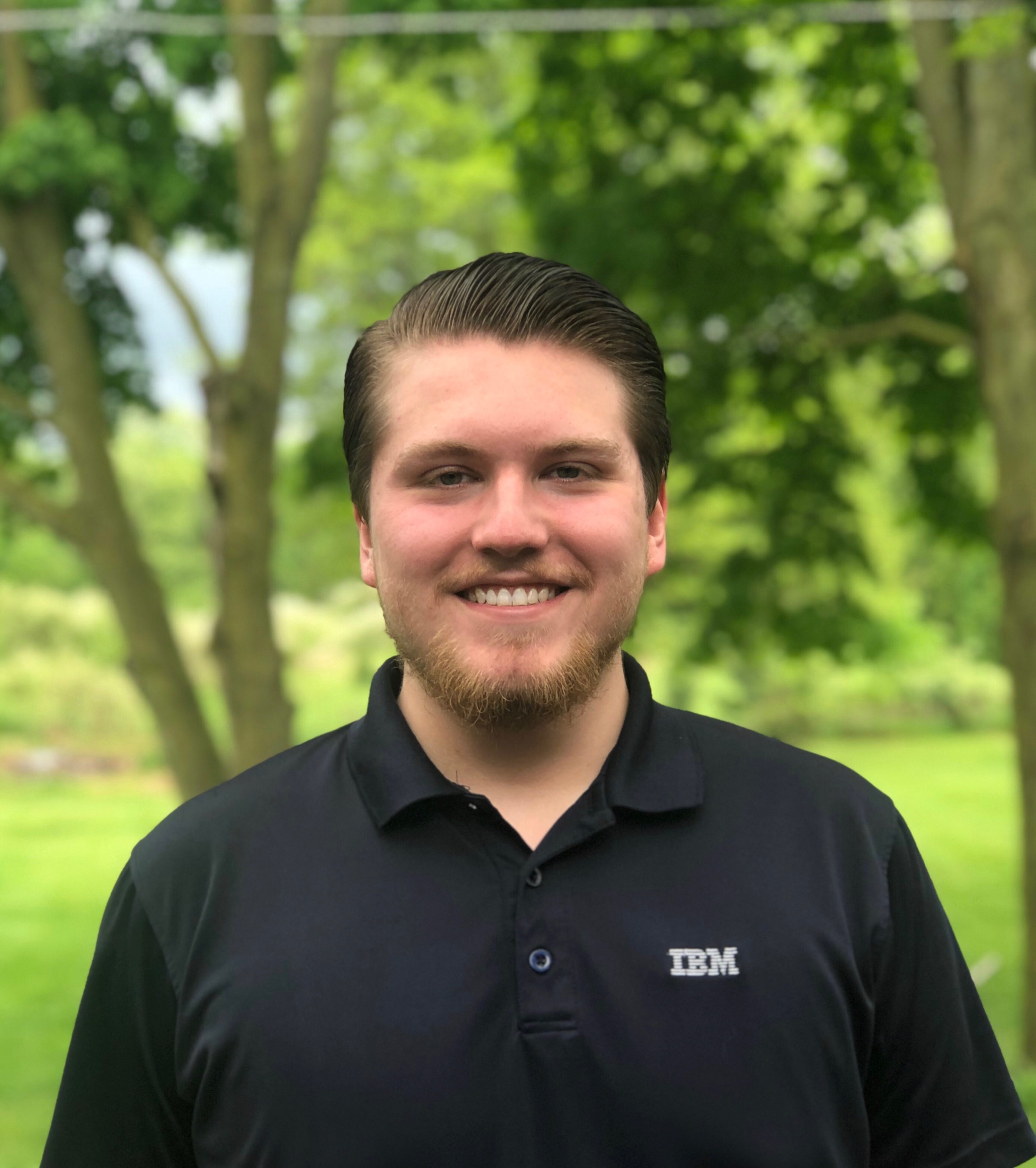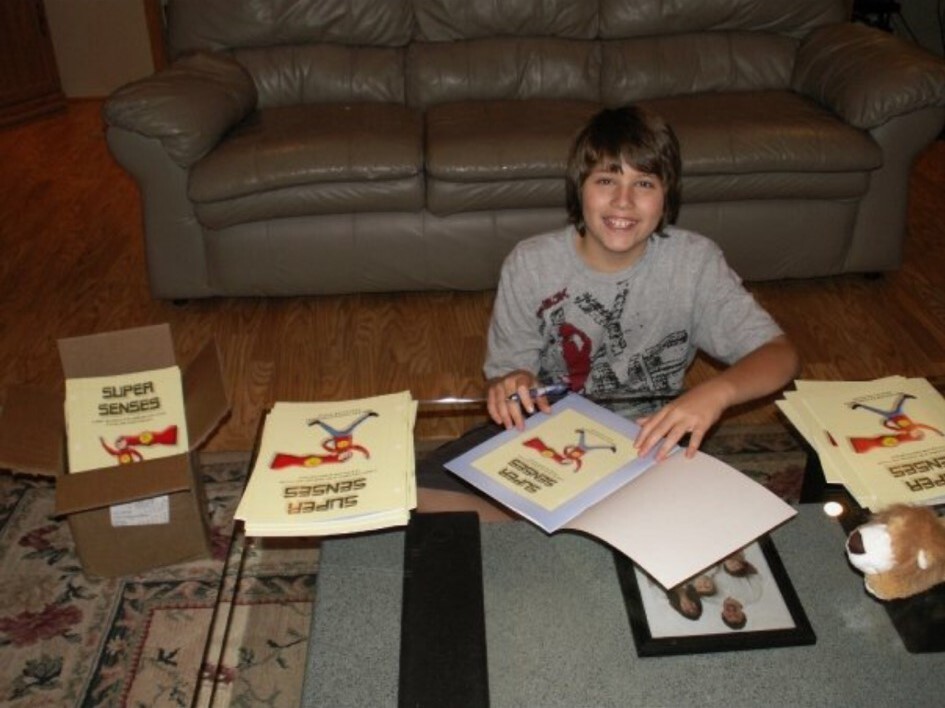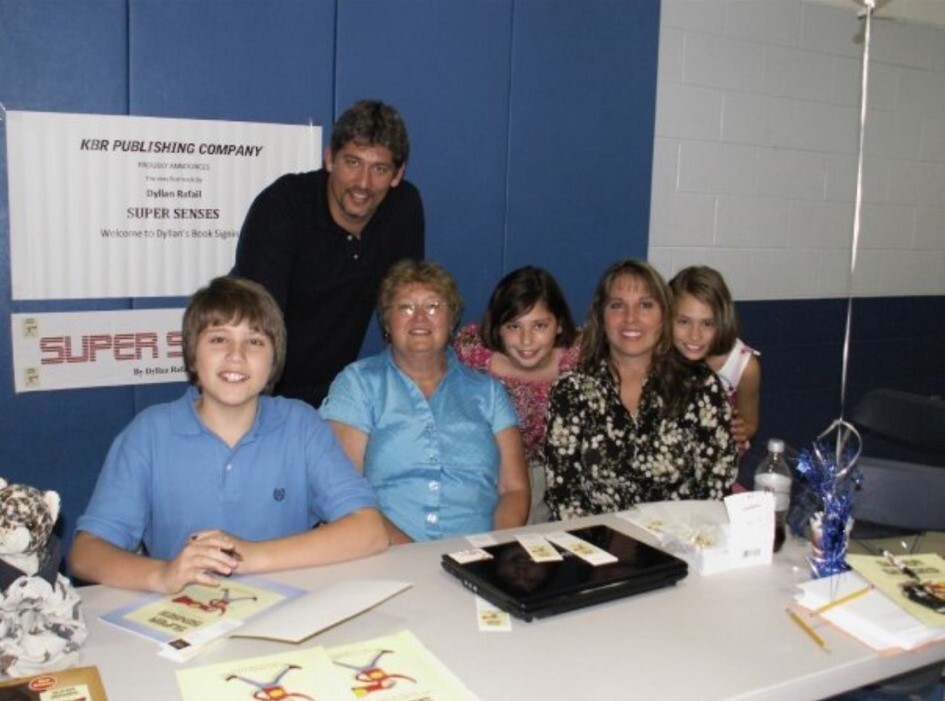Neurodiversity @ IBM
Dyllan Rafail: Design, Testing and Virtual Reality
“Neurodiversity is important because if there were no differences in the way that people thought…new ideas would
not be created.”
– Dyllan Rafail, Test Automation Specialist, and IBM IGNITE Program resource from CIC Lansing

Tell me about yourself.
Family is a big part of my life. I have two sisters; all working as teachers or have backgrounds in education. My sisters and I all used to work as pre-school teachers at a day care for a few years. At the day care, I also worked as an administrative assistant and helped teach the students math and typing skills. Ever since I can remember, I have always been interested in problem solving, automation, and technology. I’m from Ann Arbor, Michigan, but eventually left to attend Washtenaw Community College where I studied IT. I’ve now worked at IBM for about three years. During my time at IBM, I have received numerous awards for my innovations including Manager's Choice, Service Excellence, an International Design Excellence (IDEA) Award, GBS Rockstar Award, ThinkGrid Award, Dare To Create Award and IGNITE Collab Award for Best Innovation.
What is your role at IBM?
Formally, I’m a test specialist, but really my job varies by the week. I do a lot of development for mobile, desktop, web, mainframe, and even VR. I also work frequently on unconventional automation solutions and POCs; develop and present many presentations for myself or co-workers; and design and produce specialized physical products for use in my client's lab spaces. Finally, I also create digital spaces for the clients POS lab spaces, where I model all the equipment and create virtual reality experiences for client management to walk through a space before it's built.
What are some interesting projects you’ve worked on during your time at IBM?
I’ve worked with the same client since I first joined IBM. The client is a retail grocery store chain that’s located across the eastern side of the U.S. Up until COVID-19 hit, I got the opportunity to regularly travel for the client. I would travel to Boston to work in the client’s headquarters and fly back on weekends. The work interests me because I get to do what I love, which involves creating and designing products.
How does technology or the work you do at IBM impact society?
Whether it’s testing systems, producing physical products or solving problems for clients, I know that my work seeds into a greater mission at IBM, which is to improve society through tech. In terms of affecting society and the world, I’ve witnessed a collective spirit to accomplish this. Several IBMers that I personally work with have expended tremendous time and effort to make a positive impact on society. For example, my managers and other driven people have spent a lot of time on neurodiversity initiatives to help improve awareness and acceptance both at IBM and globally.
What does Neurodiversity Acceptance Month mean to you?
To me, Neurodiversity Acceptance Month serves as a reminder to evoke thought on the difference of people and neurodiversity.
What is an interesting fact about you that not many people know?


One fun fact about me is that when I was 11, I published my first book about a child’s experience with Asperger’s Syndrome and later worked with Columbia University to help educate teachers about high functioning autism. Another fun fact is that while I now do a lot of product development and design professionally, this was not actually a part of the role I was hired for. I began producing these innovations on the side out of personal interest until the client and IBM began requesting more advanced solutions. I’ve since been able to experiment much more widely with technologies such as virtual reality, artificial intelligence, additive manufacturing, server hardware, unique automation solutions, and much more.
If you could give business leaders one piece of advice to better accommodate neurodivergent professionals and create more inclusive workplaces, what would it be?
Be aware of the way humans differ. You can't expect any two people to respond, think or react to a situation the same way. There shouldn’t be one standard for communication, and that’s a good thing.